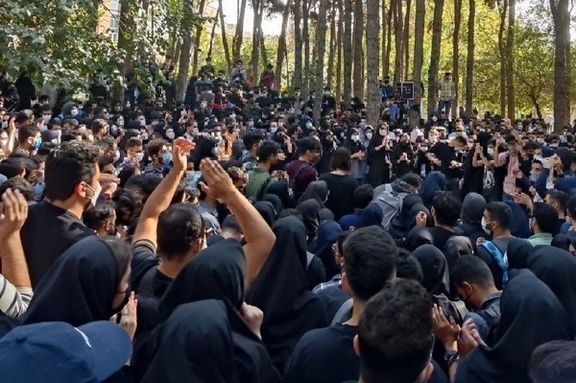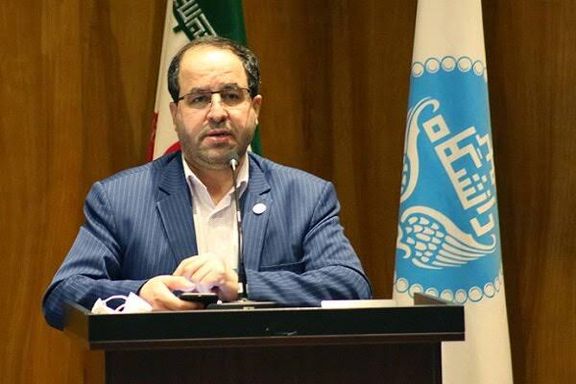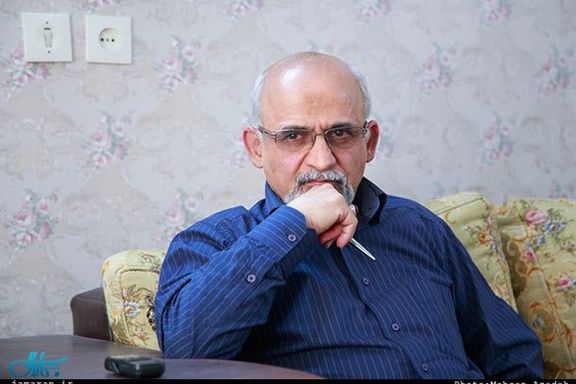Chancellor Accuses Purged Professors Of Having ‘Moral Issues’

The Chancellor of Tehran University claims that dissident professors are being sacked because of “ethical issues,” while hardliners say it is a “Revolutionary act.”

The Chancellor of Tehran University claims that dissident professors are being sacked because of “ethical issues,” while hardliners say it is a “Revolutionary act.”
“I have full knowledge that some of these individuals were terminated because they had moral issues and have been sued [by alleged victims] but they claim in the media that their termination was politically motivated,”Mohammad Moghimi, Chancellor of Tehran University, told the Iranian Labour News Agency (ILNA) Sunday.
The Ministry of Higher Education has not commented on the recent dismissals of dozens of professors. However, on August 28, the Interior Ministry released a statement denouncing criticism of the expulsions as "media propaganda" and defended the Higher Education Ministry’s "revolutionary action" against “a few professors who were academically sluggish”.
The Interior Ministry's statement also accused the sacked professors who had opposed the crackdown on students during anti-government protests, of "political immorality and media show-off," and of "defiling" the academic arena with their "factional and even anti-national views."

According to the reformist Etemad daily, 52 professors have been removed from their posts at several universities across Iran since President Ebrahim Raisi’s administration took office two years ago. Additionally, the Human Rights Activists News Agency (Hrana) stated last week that at least twenty-four professors have been sacked since mid-July this year.
Etemad claimed, that these professors included those who were “banned from entering their university, banned from teaching, fired, or forced into retirement” under various pretexts including “lacking academic proficiency”.
Some of the professors who have recently been terminated have stated their political beliefs and actions, including signing statements in support of last year’s protests and protesting students, as the reason for their removal from their posts.
Moghimi accused these professors of lying and called their social media statements “extremely unethical”.
Supreme Leader Ali Khamenei has on many occasions stressed that universities must be Islamic and those who are not aligned with the regime should not be allowed to teach. “Do not employ unreliable individuals in universities at any cost,” he said in a speech in July 2015. “There are good professors, employ them,” he added.
Speaking to the reformist Jamaran news website Sunday, prominent reformist politician Mohsen Mirdamadi called the recent surge in the elimination of dissident professors “the second Cultural Revolution”.
Mirdamadi said those behind the purge in universities aim to “silence universities”. “But previous experience shows that this will not happen,” he said.

In 1980, soon after the victory of the Islamic Revolution, the new government’s Cultural Revolutionary Headquarters shut down universities for three years to purge the academia of its challengers and to enforce its own Islamic revolutionary ideology (Islamification) in higher education establishments. During this period, thousands of professors and students were purged for various reasons, including political inclinations and western influences.
In a statement on August 27, the National Union of Iranian University Professors criticized the "profuse meddling" of security bodies in academic affairs and warned about the "gradual decline" of universities.
On August 27, the National Union of Iranian University Professors criticized the "profuse meddling" of security bodies in academic affairs and warned of the "gradual decline" of universities. Dr Mohsen Borhani, a professor of Islamic and criminal law at Tehran University who was dismissed a few months ago for criticizing the regime after the execution of four young protesters, suggested in an August 28 tweet that some professors' dismissals might be due to "illegal orders" by the National Security Council (NSC), headed by Ahmad Vahidi, the interior minister. "Universities and the country will be managed like military barracks when someone from the military becomes interior minister," Borhani remarked.